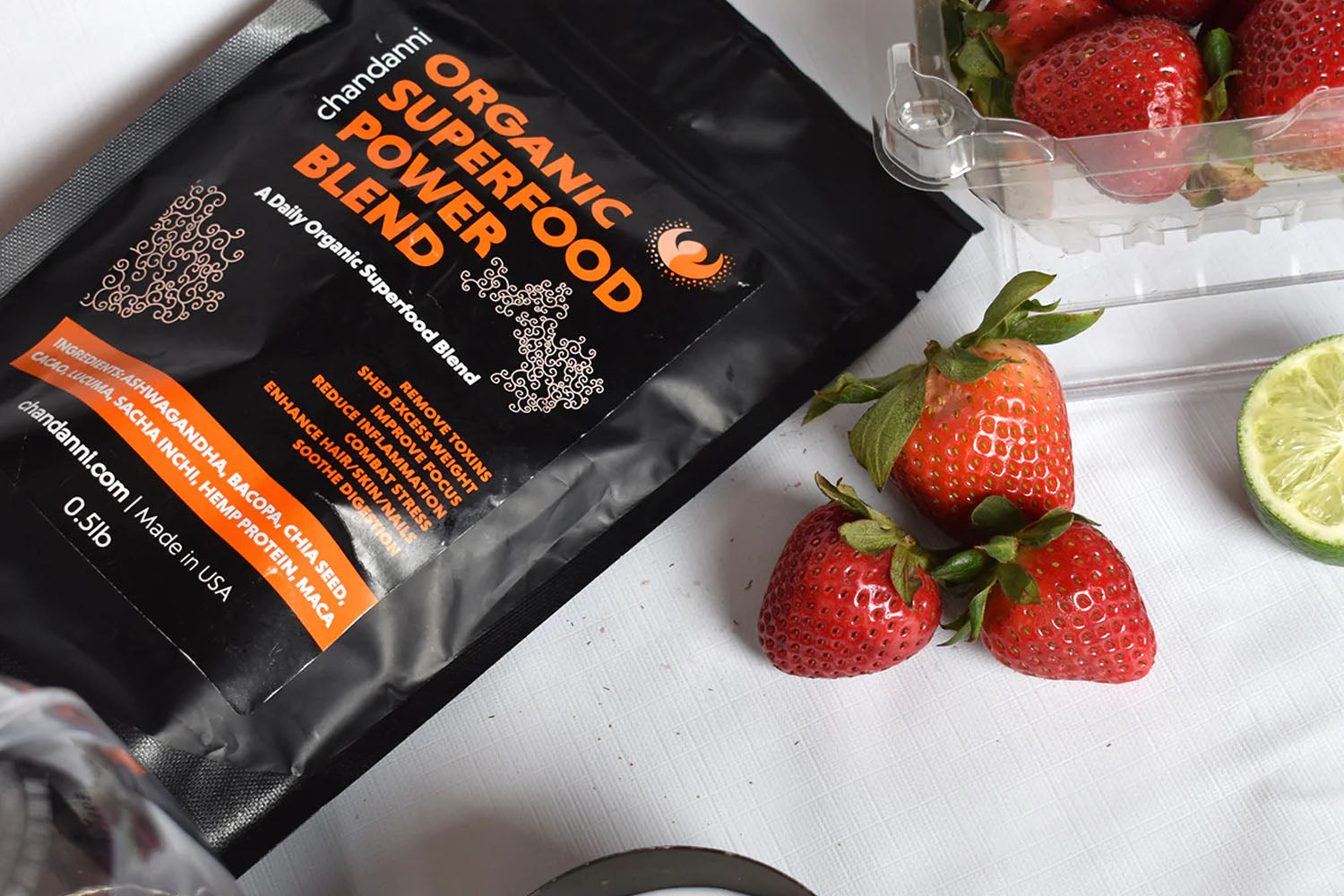
What is the Connection Between Gut Health and Hormonal Balance?
Sania TariqIn recent years, a fascinating and intricate connection has emerged between gut health and hormonal balance, revolutionizing our understanding of how our bodies function. Beyond digestion, the gut has proven to play a pivotal role in influencing our hormonal equilibrium. This intricate relationship, known as the gut-hormone axis, has far-reaching implications for overall well-being, affecting everything from mood regulation to reproductive health.
This blog will delve deep into the fascinating interplay between the gut microbiome and hormones. It will explore how their synergy can impact our health and offer insights into strategies for achieving a harmonious balance.
The Gut Microbiome - A Complex Ecosystem
The gut microbiome, a complex ecosystem teeming with trillions of microorganisms, is important to human health. Comprising an intricate community of bacteria, viruses, fungi, and other microorganisms, it is a dynamic partner in various bodily functions. As one delves into the world of the gut microbiome, it becomes evident that its development begins from the moment of birth. Elements such as mode of delivery (vaginal or cesarean), breastfeeding, and early diet significantly influence its composition. [1]

What makes the gut microbiome genuinely remarkable is its diversity and balance. A harmonious blend of different microbial species is crucial for its optimal functioning. This intricate balance not only aids in digesting food but also contributes to immune system regulation metabolism and even influences mental health. Understanding the significance of this intricate ecosystem is essential for comprehending its profound impact on overall health and well-being.
Hormones and Their Role in the Body
Hormones, the body's chemical messengers, are indispensable in orchestrating numerous physiological processes. They are vital for maintaining balance and ensuring the proper functioning of the human body. Various glands, including the pituitary, thyroid, and adrenal glands, secrete these bioactive substances.
Essential hormones like estrogen, progesterone, and testosterone are central to many bodily functions. [2]
- Estrogen, predominantly found in females, regulates the menstrual cycle, supports bone health, and affects mood.
- Progesterone, primarily found in females, is crucial in readying the body for pregnancy and sustaining the uterine lining.
- Although more abundant in males, testosterone is present in both genders and influences muscle mass, bone density, and libido.
Hormones control metabolism, growth, immune function, and reproductive processes. Understanding the intricate web of hormonal interactions is crucial for appreciating how these chemical messengers govern various aspects of our health and well-being.
The Gut-Hormone Connection
The Gut-Hormone Connection is a crucial bridge between two intricate systems within the body: the gut microbiome and hormonal balance. This relationship is a subject of growing interest in health and wellness.

1. Gut-Brain Axis - The Communication Highway
One critical aspect of the gut-hormone connection is the gut-brain axis, often called the "communication highway" between our digestive system and the brain. This intricate bi-directional communication system allows the gut to transmit signals to the brain and vice versa. Through this axis, the gut can influence our emotions, mood, and even cognitive functions by regulating the production and release of hormones. [3]
2. Gut-Hormone Axis - The Link Between Gut Health and Hormonal Balance
Another crucial facet of the gut-hormone connection is the gut-hormone axis, which directly links gut health and hormonal balance. This axis influences hormone production and metabolism, potentially impacting conditions such as polycystic ovary syndrome (PCOS), endometriosis, and thyroid disorders. Understanding this connection sheds light on maintaining a healthy gut for hormonal equilibrium.
Conditions Resulting from Gut-Hormone Imbalance
The intricate interplay between gut health and hormonal balance can profoundly affect overall well-being, extending its impact on skin and other health problems. Imbalances in the gut-hormone axis can lead to conditions such as;

Hormonal Disorders and Their Link to Gut Health
1. Polycystic Ovary Syndrome (PCOS)
PCOS, a common hormonal disorder in women, has shown a clear connection to gut health. Imbalances in gut microbiota can exacerbate PCOS symptoms, such as irregular menstrual cycles, insulin resistance, and elevated androgen levels. [4]
2. Endometriosis
Endometriosis, characterized by the growth of uterine tissue outside the uterus, may also be influenced by gut health. Chronic inflammation and immune dysfunction, often rooted in gut issues, can worsen endometriosis symptoms and pain.
3. Thyroid Disorders
Gut health can impact thyroid function. Conditions like Hashimoto's thyroiditis and Graves' disease, which involve autoimmune responses against the thyroid gland, can be influenced by gut inflammation and the gut's role in immune regulation. [5]
Moreover, maintaining a harmonious gut-hormone balance is crucial for addressing these conditions and achieving healthy, radiant skin and overall well-being.
The Role of Inflammation in gut-hormone imbalance
Inflammation, a common consequence of gut dysbiosis (microbial imbalance), can disrupt the gut hormone axis. Elevated levels of inflammation can lead to insulin resistance, disrupt sex hormone balance, and contribute to developing or exacerbating hormonal disorders. Recognizing the role of inflammation in gut-hormone imbalance is essential for developing effective strategies to tackle these health conditions comprehensively.
Strategies for Promoting Gut Health and Hormonal Balance
Individuals can adopt strategies to achieve optimal well-being by nurturing the connection between gut health and hormonal balance. These approaches encompass dietary modifications, lifestyle adjustments, and the incorporation of gut-friendly recipes. [6] Additionally, recognizing when it's appropriate to seek medical advice and professional help is crucial for comprehensive health management.

1. Dietary changes for a healthy gut
One key avenue for promoting gut health is through dietary changes. Incorporating fiber-rich foods, prebiotics, probiotics, and nutrients can foster a diverse and balanced gut microbiome. This, in turn, positively influences hormonal equilibrium and overall health.
2. Lifestyle practices for improving gut health
Lifestyle practices also play a significant role in nurturing gut health. Effective stress management, regular exercise, and prioritizing quality sleep can create a favorable environment for a thriving gut microbiome, ultimately contributing to hormonal balance.
3. Gut-friendly recipes and meal plans
Exploring gut-friendly recipes and meal plans can make the journey towards better gut health more enjoyable and sustainable. These recipes, such as superfood blends, can incorporate organic products that promote gut microbiome diversity and health.
4. When to seek medical advice and professional help
Lastly, it's essential to recognize when self-care efforts may not be sufficient. Knowing when to seek medical advice and professional help, especially in cases of persistent gut or hormonal issues, ensures that individuals receive the necessary guidance and treatment from healthcare experts to achieve optimal health.
Gut Health and Hormonal Balance - The Future of Medicine
The symbiotic relationship between gut health and hormonal balance holds immense promise for the future of medicine. As research continues to unveil the intricacies of the gut hormone axis, it opens doors to innovative therapeutic approaches. Personalized medicine tailored to an individual's unique gut microbiome profile may become a reality, allowing for more effective treatments for hormonal disorders and related conditions.
Moreover, a holistic understanding of how gut health influences hormones offers opportunities for preventive healthcare, mental health management, and a deeper comprehension of the body's interconnected systems. The future of medicine undoubtedly lies in harnessing the power of the gut to optimize hormonal balance and overall well-being.
Conclusion
In conclusion, the profound connection between gut health and hormonal balance underscores the significance of a holistic approach to well-being. From the intricate web of the gut-brain and gut-hormone axes to the impact of dietary choices and lifestyle practices, our choices profoundly influence our health. By recognizing the link between the gut microbiome and hormonal equilibrium, we empower ourselves to take proactive steps toward achieving lasting health. As science continues to unveil the potential of this relationship, the future of medicine holds the promise of personalized care, revolutionizing how we approach and optimize our health.
FAQs
- How can I balance my hormones?
Achieve hormonal balance through lifestyle changes like diet, exercise, and stress management.
- What are the signs of hormonal imbalance?
Signs of hormonal imbalance include irregular periods, mood swings, and fatigue.
- Is hormonal balance good?
Hormonal balance is essential for overall well-being and health.
- Which fruit is best for hormones?
Berries, avocados, and bananas are some fruits that can support hormone balance.
References
[1]https://www.ncbi.nlm.nih.gov/pmc/articles/PMC4928817/
[4]https://www.endocrinewellness.com/pcos/




